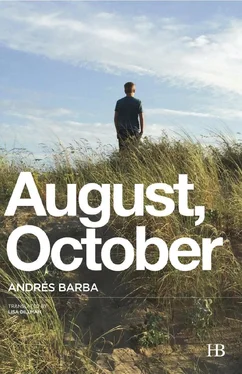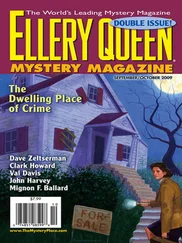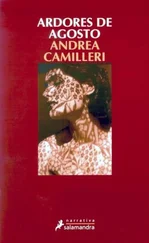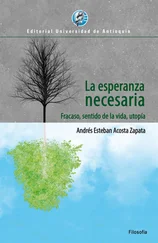It would have been nearly impossible to explain the hysteria with which he would awake from that dream. One time he woke up screaming, which led to a small panic. He saw his mother crouching there beside him, disheveled, face puffy, smelling like sleep, eyes wide with fear.
“What on earth were you dreaming?”
He couldn’t help it, he burst into tears. His mother sat down beside him and tried to hug him, but since they almost never touched, the physical contact was even more distressing. He felt like he was slipping down a soft, oily, gray hill. That was the first time he cried in front of his mother as an adult.
Rage and shame sometimes converged to form a state of full-on misery. He felt within his body the pain of things hitherto unknown — his liver, blood, stomach, lungs, heart. And disgust at the pain. And disgust at the shame. It got even worse when he found out a girl liked him. There was this one girl in his class who was kind of after him, a girl named Lourdes who had a very small body and boy’s hips, who sometimes waited for him after class and didn’t live far from him. She was pretty, though, her facial features had a fine, delicate beauty about them, a beauty just starting to emerge but clearly present. Her features had developed unevenly; she had full, sensual lips, but her expression was incredibly childlike and anxious, as though something inside her were teetering, constantly losing her footing on the path to becoming a woman. It wasn’t specifically Lourdes’ desire he found so unpleasant but desire in and of itself, any desire for bodies on top of one other. The fact that all those people — Lourdes, the other girls, men strolling past him on the street — had done it , or at least were always wanting to do it, imposed a kind of fatalistic quality on the world. After class, when he saw her there waiting for him, he could almost feel her desire on top of him like a slimy substance. Then, walking along beside her, Lourdes would be talking about her parents or some classmate and he couldn’t help but focus on her arms, her already-developed breasts (which, curiously, she tried to squash beneath T-shirts that compressed them unnaturally), the robust, carnal message her body sent by walking so close to him. It seemed grotesque and unnecessary to use sentimental ploys to conceal something that was, in fact, grotesque and crude, and although he felt disgusted by desire, he felt equally disgusted by the fact that it couldn’t be openly addressed. Lourdes would laugh, and he’d see — behind her disturbingly perfect, white teeth — a strange, repulsive tongue, a repulsive tongue darting around inside her mouth with repulsive speed, he’d see the slight trembling of her cheeks when she tried to smile, and the way the trembling persisted when she held her smile longer than necessary, and how it then became fixed, like an animal hide that’s been pulled taut and laid out to dry in the sun. The quick kiss on the cheek she gave him when they got to her house and said goodbye was like a burning moth on his skin, and he would try to wear himself out when climbing the stairs, as if in need of physical exhaustion to escape the listlessness.
Only pain was real. Physical pain. Only pain had the ability to hold everything, to impose order on it, to place it within strict confines. The first time it happened, it was almost by accident. He was in bed and leaned to one side and jabbed himself with a screw sticking out of the wooden bedframe. Immediately his body flinched in pain. He touched his thigh and felt around the bed for the source. The boards on the frame’s joint had separated slightly, and the tip of a long, black screw was sticking out. After that, it became a near-daily routine — he’d lie face up and inch closer to that spot until he could feel the tip of the screw in his thigh, he’d force his body not to recoil and then press firmly into it. The pain was sharp and concentrated, and his whole body tensed against it. It was as if something inside him could be at ease when he felt that pain, as if something stopped being unreal and weak. But then the pain would subside again and there would be nothing left, nothing but a round bloodstain on his pajama bottoms, which he then had to rinse out in the bathroom so no one would see.
He began to cry. It was a strange kind of crying, one sometimes brought on by the most banal of events.
“You’re blue today,” Anita said.
“What do you mean, blue?”
“Blue,” she insisted.
“I’m not a good person, Anita, I’ve done very bad things.”
“Me, too,” she replied gravely. “If you knew. .”
Then he’d get the feeling something was entering his body, slowly and cautiously, making his insides all soft, and then suddenly there would come a burst of anguish. The scene from the dunes would appear, startlingly sharp — sterile, monotonous, unacceptable, repetitive — he’d feel even more anxiety than he had when he was actually beside Marita, or on top of her. Then he’d go into the bathroom, get a towel, and bite down on it as hard as he could, until his jaw ached.
In early autumn he got the flu. He felt embarrassed to be taken care of, to have broth made for him, to be tucked in when he fell asleep. Anita would poke her head in from the doorway and say hello from there so as not to catch it, she would try to make him laugh and sometimes succeeded, she’d make him a drawing or come in with the laptop and they’d watch a movie together — he, lying in bed; she, sitting on the floor with a handkerchief tied over her mouth like a miniature bank robber. It was a long week of convalescence, and it happened to be the same week as his birthday. He got a black leather jacket he really liked, but as soon as he opened the package, he felt his desire recede, felt the jacket degrade to the point of seeming just a ridiculous piece of merchandise. And since the end of summer, the same thing that happened with objects he longed for had been happening with everything else; it was as if he couldn’t focus his attention on them.
He spent those days at home, alone, and when his fever broke, he’d wander around the house snooping through everyone’s drawers. On one of those afternoons, he discovered, in one of his father’s desk drawers, the keys to Aunt Eli’s house. When he touched them, it was as though he’d gotten an electric shock that ran clear through him. He picked them up and took them back to his room. He started to fantasize. The keys to Aunt Eli’s house held for him the same seductive appeal every malicious object always had, like the time a boy he knew brought to class a Nazi jackknife, which he claimed had belonged to a German officer. For a few seconds he’d held that small, heavy object in his hand — it was lacquered in black with a little, white swastika on it — and felt a rush of vertigo, as if there were something evil concentrated in the object itself, or as if he couldn’t touch it without being affected by its sway. Something similar happened when he brought Aunt Eli’s keys back to bed with him. The keys, too, seemed to emanate some sinister power, a mysterious, irreversible pull. He hardly slept that last night he spent at home.
First came white light, then pink light, then a shadow, then white light again, pink once more, shadow; when he opened his eyes, the countryside looked frozen, even though the bus was still moving. He was having a hard time thinking clearly. It had taken a stroke of luck — an envelope containing three hundred euros he found in his parents’ bedroom. He knew he didn’t have much time to make up his mind about it; that money certainly wasn’t going to be there for long, and he’d recovered now from the flu. The next morning, he’d left the house with his school backpack full of clothes and the three hundred euros in his pocket, but instead of heading to school, he made for the bus station. Three hours later the bus was on its way and his eyes were opening and closing. He was shocked at how easy it had all been. White light, pink light, shadow. White light, pink light, shadow. It had rained the night before, and the landscape looked both muted and shiny at the same time, as though it had been varnished and then illuminated with a very faint light.
Читать дальше












